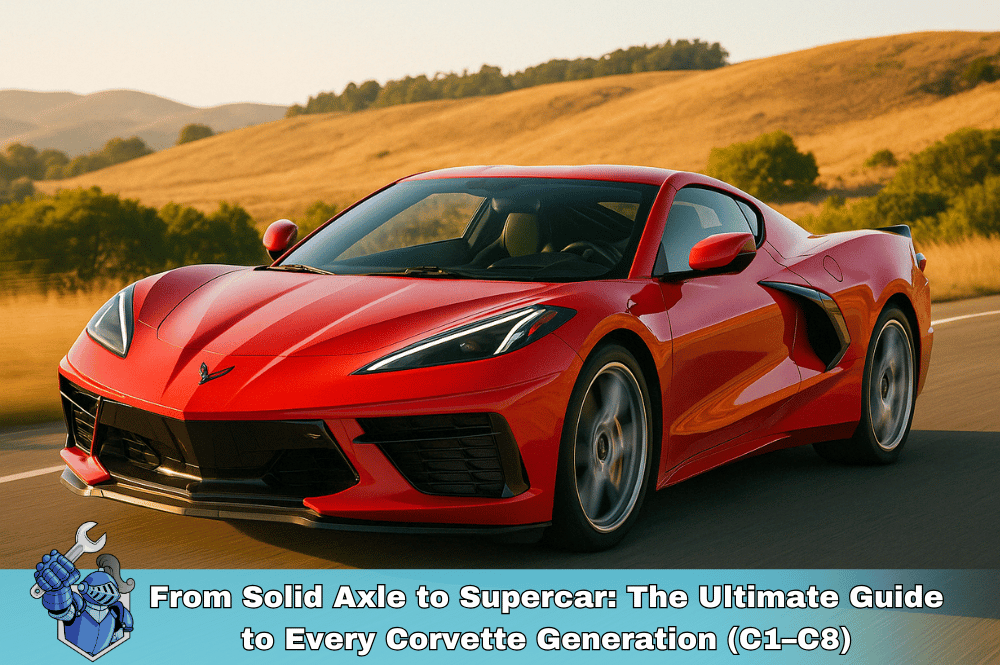When it comes to protecting your investment in a car, warranties play a crucial role. They offer peace of mind and financial security in case of unexpected repairs. In this post, we'll delve into the differences between extended car warranties and manufacturer warranties, helping you make an informed decision on which option suits your needs best.
Understanding Car Warranties
What are Car Warranties?
Car warranties are contractual agreements offered by manufacturers or third-party providers to cover certain repairs and replacements for a specified period. They provide a safety net against unexpected mechanical failures.
Types of Car Warranties
There are primarily two types of car warranties: manufacturer warranties and extended warranties. Manufacturer warranties are also known as factory warranties, are offered by the vehicle's maker and come standard with new cars. Extended warranties, on the other hand can be purchased separately to extend coverage beyond the manufacturer's warranty.
Manufacturer Warranties: What You Get
Coverage Period
Manufacturer warranties typically last for a specific number of years or miles, whichever comes first. They usually include a bumper-to-bumper warranty that covers most components and a powertrain warranty that covers the engine and transmission.
Inclusions and Exclusions
Manufacturer warranties cover defects in materials and workmanship. However, they might not cover regular maintenance or wear-and-tear items like brake pads or tires.
Benefits of Manufacturer Warranties
One significant advantage of manufacturer warranties is that repairs are performed by authorized dealerships using genuine parts. Additionally, they provide a sense of reliability and reassurance to the car owner.
Extended Car Warranties: An Overview
What are Extended Car Warranties?
Extended car warranties are also known as service contracts, are optional plans that extend coverage beyond the manufacturer's warranty. They can be purchased from the manufacturer or third-party providers.
Coverage Extension
Extended warranties cover repairs and replacements of specific components outlined in the contract. They offer a wider range of coverage compared to manufacturer warranties.
Pros of Extended Warranties
Pros include added coverage for a longer period and the potential for cost savings on repairs.
Coverage Comparison
Repairs and Maintenance
Both manufacturer and extended car warranties cover repairs, but extended car warranties offer more comprehensive coverage, often including items that aren't covered by manufacturer warranties.
Components Covered
Manufacturer warranties may exclude certain components, while extended car warranties can be customized to cover items that are important to you, such as electronics or high-tech features.
Cost Considerations
Extended warranties come at an additional cost, but they can save money in the long run by covering expensive repairs. Manufacturer warranties are included in the car's purchase price.
Flexibility and Customization:
Tailored Plans
Extended warranties allow you to choose the level of coverage that fits your needs, whereas manufacturer warranties are standard and might not cater to individual preferences.
Optional Add-ons
Extended car warranty providers often offer add-on packages for items like roadside assistance or rental car coverage, providing more value and customization.
Claim Process and Customer Experience
Manufacturer Warranty Claims
With manufacturer warranties, repairs are usually done at authorized service centers. The process is streamlined, but you might have limited flexibility in choosing where to get repairs done.
Extended Warranty Claims
Extended warranty claims may offer more flexibility in repair location but could require more paperwork and approvals.
Customer Satisfaction
Satisfaction with warranty services can vary. Some car owners prefer the convenience of authorized dealerships, while others appreciate the broader repair options with extended warranties.
Long-Term Value
Beyond the Warranty Period
Once manufacturer warranties expire, you're responsible for all repair costs. Extended car warranties can provide continued coverage, extending the value and life of your vehicle.
Resale and Transferability
Cars with active extended car warranties can be more attractive to buyers and can often be transferred to new owners, adding resale value.
Factors to Consider When Choosing
Driving Habits and Mileage
If you drive long distances or have a lengthy commute, an extended car warranty might be a wise choice to ensure coverage for higher mileage wear and tear.
Vehicle Reliability
Consider the make and model's historical reliability. If it's known for durability, a manufacturer warranty might be sufficient.
Budget and Affordability
Evaluate your budget and the potential costs of future repairs. An extended car warranty can provide financial peace of mind.
Making the Right Choice
Assessing Your Needs
Carefully assess your driving habits, the car's reliability, and your budget to determine whether an extended car warranty is worth it.
Reading the Fine Print
Thoroughly read and understand the terms and conditions of both manufacturer and extended car warranties before making a decision.
Consulting Experts
If you're unsure, consult mechanics or experts in the automotive industry who can provide valuable insights.
Conclusion
In the battle of extended car warranties versus manufacturer warranties, there's no one-size-fits-all answer. Each type comes with its own advantages and disadvantages, and the best choice depends on your individual circumstances. Be sure to evaluate your driving habits, vehicle reliability, and budget to make an informed decision that offers long-term peace of mind.
For more information, please visit NobleQuote's Learning Center.
FAQs
Q: Are extended car warranties worth the investment?
A: Extended car warranties can be beneficial if you plan to keep your car for an extended period or want to safeguard against potential costly repairs.
Q: Can I purchase an extended warranty at any time?
A: Generally, extended car warranties are available at the time of purchasing a new car or within a certain time/mileage window.
Q: Do extended warranties cover regular maintenance?
A: No, extended warranties primarily cover repairs related to mechanical breakdowns, not routine maintenance.
Q: Can I transfer an extended warranty to a new owner if I sell my car?
A: In many cases, yes. Extended warranties often offer transferability, which can enhance your car's resale value.
Q: Is it better to get repairs done at authorized dealerships?
A: Authorized dealerships offer specialized expertise, but some extended warranties allow repairs at certified mechanics as well.
Suggestions for you
Read MoreLet’s work together
Every week we showcase three charitable organizations that our donations are sent to. Our clients are able to choose which of these three will receive their gift when they add coverage to their vehicle...




